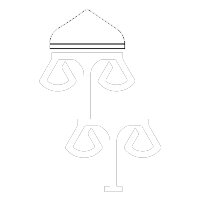Best ADR Mediation & Arbitration Lawyers in Port of Spain
Share your needs with us, get contacted by law firms.
Free. Takes 2 min.
List of the best lawyers in Port of Spain, Trinidad and Tobago
About ADR Mediation & Arbitration Law in Port of Spain, Trinidad and Tobago
Alternative Dispute Resolution (ADR) Mediation & Arbitration is a legal process used in Port of Spain, Trinidad and Tobago to resolve conflicts outside of traditional court litigation. It is a voluntary and confidential method that aims to bring parties together to find mutually agreeable solutions with the help of a neutral third party.
Why You May Need a Lawyer
There are several situations in which you may require legal help in ADR Mediation & Arbitration. Some common reasons include:
- If you are involved in a dispute and want to explore the possibility of resolving it through mediation or arbitration.
- If you need assistance in understanding your rights and obligations under ADR Mediation & Arbitration laws in Port of Spain, Trinidad and Tobago.
- If you are preparing for an ADR session and require guidance in presenting your case effectively.
- If the other party involved in the dispute has legal representation, it is advisable for you to seek legal assistance as well.
- If you need help in negotiating fair and favorable settlements during the ADR process.
Local Laws Overview
In Port of Spain, Trinidad and Tobago, the following are key aspects of local laws relevant to ADR Mediation & Arbitration:
- The Arbitration Act provides the legal framework for arbitration proceedings in the country.
- The Mediation Act governs the process of mediation and sets out the rights and obligations of parties involved.
- The courts in Port of Spain, Trinidad and Tobago generally support and promote the use of ADR methods.
- Parties can agree to arbitration or mediation through contractual provisions or by mutual consent after a dispute arises.
- The decisions reached through ADR Mediation & Arbitration are legally binding and enforceable in court.
Frequently Asked Questions
1. What is the difference between mediation and arbitration?
Mediation is a non-binding process where a neutral mediator helps parties reach a voluntary agreement. In contrast, arbitration is a more formal process where a neutral arbitrator makes a binding decision to resolve the dispute.
2. Is ADR Mediation & Arbitration mandatory before going to court in Port of Spain, Trinidad and Tobago?
No, ADR Mediation & Arbitration is voluntary in most cases. However, parties can agree to it through contractual provisions or if mandated by a judge.
3. How long does the ADR process usually take in Port of Spain, Trinidad and Tobago?
The duration of the ADR process varies depending on the complexity of the dispute and the willingness of the parties to reach an agreement. It can range from a few weeks to several months.
4. Can decisions made through ADR Mediation & Arbitration be appealed?
In general, the decisions made through ADR Mediation & Arbitration are final and binding. However, there may be limited grounds for appeal based on procedural irregularities.
5. What are the advantages of using ADR Mediation & Arbitration over traditional court litigation?
ADR Mediation & Arbitration offers advantages such as cost-effectiveness, confidentiality, flexibility in scheduling, and the opportunity for parties to have more control over the outcome of their dispute.
Additional Resources
If you need legal advice or assistance in ADR Mediation & Arbitration, the following resources may be helpful:
- The Ministry of Justice: Provides information on ADR methods, legislation, and contact details of relevant institutions.
- Trinidad and Tobago Chamber of Industry and Commerce: Offers a directory of ADR service providers and educational resources.
- The Mediation Board of Trinidad and Tobago: Regulates the practice of mediation and provides information on accredited mediators.
Next Steps
If you are seeking legal assistance in ADR Mediation & Arbitration in Port of Spain, Trinidad and Tobago, it is advisable to:
- Research and gather information about the ADR process and local laws.
- Consider consulting a lawyer with expertise in ADR Mediation & Arbitration.
- Prepare and organize any relevant documents or evidence related to your dispute.
- Explore the available resources and institutions mentioned above for further guidance.
- Initiate contact with a mediator or arbitrator to discuss the potential for resolving your dispute through ADR.
Lawzana helps you find the best lawyers and law firms in Port of Spain through a curated and pre-screened list of qualified legal professionals. Our platform offers rankings and detailed profiles of attorneys and law firms, allowing you to compare based on practice areas, including ADR Mediation & Arbitration , experience, and client feedback.
Each profile includes a description of the firm's areas of practice, client reviews, team members and partners, year of establishment, spoken languages, office locations, contact information, social media presence, and any published articles or resources. Most firms on our platform speak English and are experienced in both local and international legal matters.
Get a quote from top-rated law firms in Port of Spain, Trinidad and Tobago — quickly, securely, and without unnecessary hassle.
Disclaimer:
The information provided on this page is for general informational purposes only and does not constitute legal advice. While we strive to ensure the accuracy and relevance of the content, legal information may change over time, and interpretations of the law can vary. You should always consult with a qualified legal professional for advice specific to your situation.
We disclaim all liability for actions taken or not taken based on the content of this page. If you believe any information is incorrect or outdated, please contact us, and we will review and update it where appropriate.














